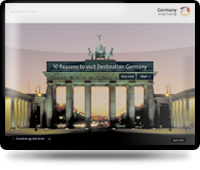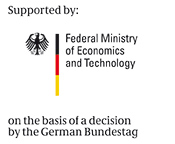Travel in Germany
Traveling by Car
Germany's Autobahns cover a distance of approx. 7,600 miles and form an ultra-modern and efficient transportation network. More than 700 gas stations, service areas and hotels are open twenty-four-seven. There are no tolls for passenger cars on the German Autobahn. In the event of an accident or breakdown, the German Automobile Association (ADAC) can provide roadside assistance throughout the country. Members of an international partner organization such as AAA receive free assistance. Drivers are required to carry a valid driver's license, the vehicle registration documents and proof of proper insurance. Vehicles from other countries which do not have a European registration plate incorporating the country code are required to display a sticker showing their country of origin. Leaded petrol is no longer available in Germany; the majority of passenger cars uses "Super" or "Super Plus" fuel. Besides regular "Diesel", "Bio-Diesel", a green fuel made of biomass, is also available. As more and more cars are equipped with natural gas engines, Germany also has an increasing number of natural gas filling stations. As of 2011, the new fuel-type "E-10" is available as an environmentally-friendly alternative to regular "Super" gasoline. Make sure to check if your car model is suitable for it before you fill up.
- Route Planner
- Low Emission Zones in German Cities
- Autobahn Guide with Maps and Travel Tips
- Driving and Car Experiences in Germany
Travel Planner
Select an option...






